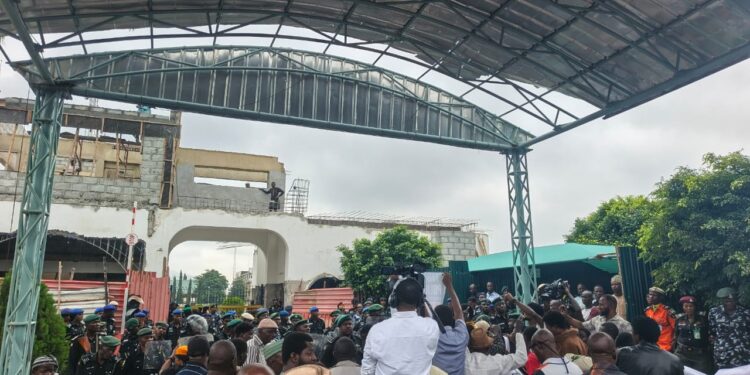Dozens of retired police officers disrupted operations at the Nigeria Police Force Headquarters in Abuja on Monday, blocking the main entrance in protest against what they termed an “exploitative and unjust” contributory pension system.
The demonstration marked the second major protest of the day for the aggrieved retirees, who had earlier staged a similar action at the National Assembly complex before marching to the police headquarters.
The elderly former officers completely obstructed both vehicular and pedestrian access to the facility, vowing to maintain their position until authorities addressed their grievances regarding the current pension arrangement.
Senior police officials, including Federal Capital Territory Commissioner of Police Adewale Ajao and Force Public Relations Officer ACP Muyiwa Adejobi, attempted to negotiate with the protesters and restore normal operations. However, their appeals for the demonstrators to vacate the premises were unsuccessful as the retirees remained resolute in their demands.
The protest featured emotional displays from the former officers, many carrying placards with messages including “We Deserve Better,” “Say No to Contributory Pension,” and “Police Retirees are Dying in Poverty.” Despite heavy rainfall, the demonstrators persisted with their chants and calls for immediate government intervention.
During the earlier National Assembly demonstration, retired Chief Superintendent of Police CSP Manir Lawal spoke on behalf of his colleagues, highlighting the severe financial hardships faced by former police personnel under the existing pension framework.
The retired officers are demanding their complete removal from the Contributory Pension Scheme, arguing that the system has failed to provide adequate financial support for those who served the nation in law enforcement roles.
The dual protests represent a significant escalation in the ongoing dispute between retired police officers and government authorities over pension administration, with the demonstrators showing no signs of backing down from their demands for systemic change.

















